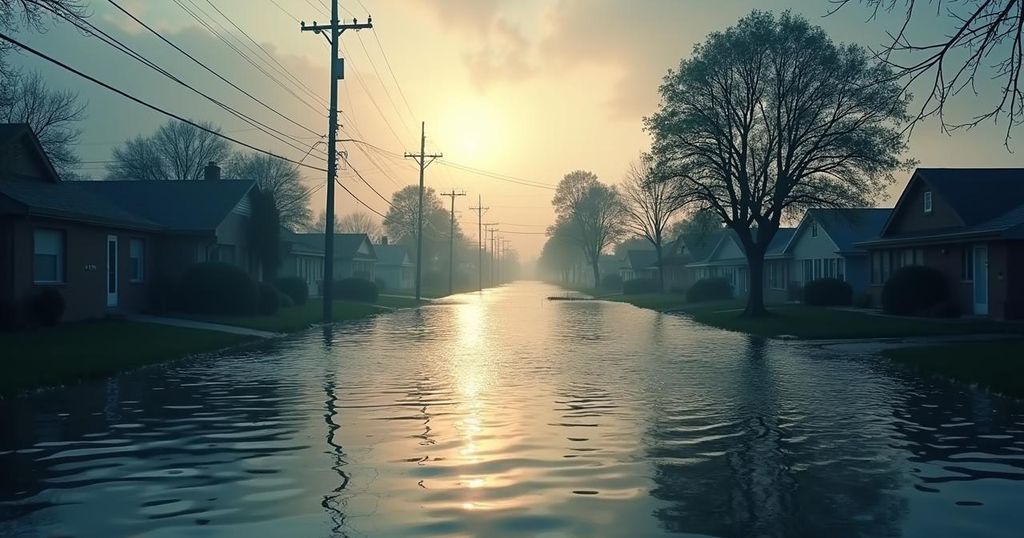FEMA Administrator Deanne Criswell has identified climate change as a significant factor in the devastating effects of Hurricane Helene, attributing the storm’s rapid intensification and historic flooding in North Carolina to warmer Gulf waters. The storm has resulted in at least 88 fatalities across multiple states, with FEMA observing extensive damage to infrastructures. Criswell’s remarks highlight the urgent need for improved disaster preparedness as climate change continues to affect storm behavior.
On a recent episode of CBS’ “Face the Nation,” FEMA Administrator Deanne Criswell attributed the extensive devastation caused by Hurricane Helene, including significant fatalities and unprecedented flooding, to climate change. She noted that the storm intensified quickly due to elevated water temperatures in the Gulf of Mexico. “This storm took a while to develop, but once it did, it developed and intensified very rapidly,” stated Criswell, highlighting that the warm waters contribute to more severe storms reaching major hurricane categories than in previous years. Criswell also pointed out that the warmer ocean conditions lead to increased storm surge and rainfall as hurricanes progress northward, stating, “In the past, when we would look at damage from hurricanes, it was primarily wind damage, with some water damage. But now we’re seeing so much more water damage… as a result of the warm waters, which is a result of climate change.” The Federal Emergency Management Agency (FEMA) has observed significant damage across multiple states including Florida, Georgia, South Carolina, North Carolina, and Tennessee. Criswell remarked on the “historic flooding” particularly prevalent in North Carolina, where the storm has resulted in substantial destruction, with infrastructures such as water systems and transportation routes severely affected. In Buncombe County of North Carolina, where the city of Asheville is located, the local sheriff reported at least 30 fatalities, contributing to a total death toll of 88 across the affected regions. North Carolina Governor Roy Cooper has warned that the toll may rise as emergency services reach previously inaccessible areas due to blocked roads and widespread flooding, urging residents to avoid travel in the affected western part of the state to facilitate rescue efforts. This incident underscores the urgent need for addressing climate impacts on weather patterns and disaster preparedness.
The statement by FEMA’s head comes in light of the increasing frequency and intensity of storms attributed to climate change. In recent years, hurricanes have shown more capability to rapidly intensify due to higher ocean temperatures, resulting in devastating impacts through flooding and damage to vital infrastructure. The aftermath of Hurricane Helene illustrates the ongoing challenges faced by communities in coping with these escalating natural disasters and highlights the critical role of preparedness and responsiveness from federal and state agencies in the face of climate change.
The comments from FEMA Administrator Deanne Criswell reflect a growing recognition of the link between climate change and severe weather events such as Hurricane Helene. The unprecedented flooding and fatalities resulting from this storm underscore urgent concerns regarding disaster preparedness as well as the pressing need for strategies to mitigate the impact of climate change on future storms. The call for increased vigilance and resource allocation is vital for enhancing community resilience in the face of increasingly unpredictable weather patterns.
Original Source: www.ibtimes.com






